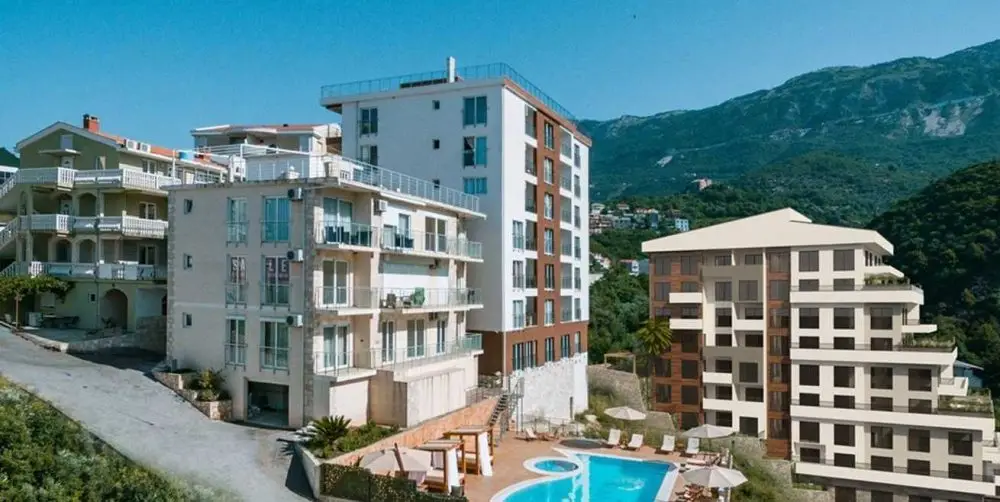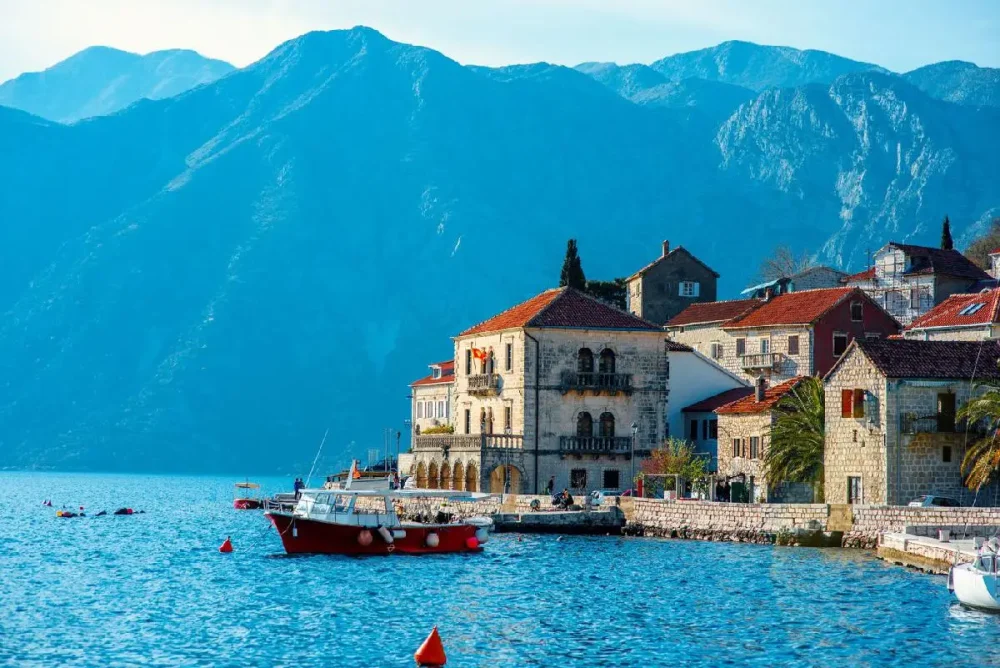Montenegro is a small but diverse country where Mediterranean tranquility coexists with business opportunities, comfort, and harmonious living. That’s why immigration has become popular among those seeking a warm climate, affordable real estate, and quality infrastructure. However, before moving to Montenegro for permanent residence, it is important to study the specifics of each region, as the terrain in Budva and Herceg Novi offers two completely different scenarios.
Let’s explore the best cities in Montenegro for living, evaluating their convenience for children, retirees, entrepreneurs, and those who simply want to change the pace of their daily lives.

Podgorica — the capital and business center
The metropolis is ideal for those who want to live in the heart of the country and appreciate good transportation accessibility. Here you can find an international airport, universities, shopping centers, and a large number of job opportunities.
Podgorica is not a resort, so there is no tourist hustle and bustle here, and real estate is cheaper than in coastal cities. However, it can get hot here in the summer, and the lack of nearby sea may be a downside for beach lovers.
Budva — for the active and ambitious
The resort is the epicenter of Montenegro’s tourist freedom. If you value entertainment, dynamics, cafes, restaurants, and beautiful beaches, Budva is the perfect place to live. However, it’s worth noting that it gets overcrowded with tourists in the season, and in winter, the area noticeably quiets down.
Bar — convenience and accessibility
Bar is considered one of the most convenient cities for permanent residence. It combines infrastructure accessibility and the sea with a measured way of living. There are many schools, good shops, medical facilities, and no excessive hustle and bustle. The region is perfect for living with children.
Tivat — elite comfort
The region is suitable for those seeking a high level of comfort and are willing to invest in Montenegro’s real estate. It is home to the elite area of Porto Montenegro, popular among yachtsmen and businessmen.
Tivat has an airport, making it convenient for frequent trips. However, property prices here are higher than in most other settlements in the country.
Kotor — an ancient region with a special atmosphere
If you dream of living in a medieval center surrounded by mountains, Kotor is an excellent choice. The city is listed as a UNESCO World Heritage Site and attracts those who appreciate architecture, history, and secluded areas.
However, Kotor can be expensive for purchasing property, and its narrow streets and high humidity may not suit everyone.
Herceg Novi — tranquility and nature
The town is famous for its microclimate, considered beneficial for health. There are fewer tourists here than in Budva, and property prices are moderate.
For retirees, the region is ideal — the measured pace of the streets, developed healthcare, and beautiful landscapes create comfortable living conditions.
Cetinje — cultural center
The city is considered one of the best for a peaceful life and is suitable for those who love art and history. It was the capital of Montenegro and still retains its status as a cultural center. Here you can find museums, theaters, and historical landmarks.
However, it’s worth noting that it can be cooler in Cetinje in winter than in coastal cities, and the level of tourist activity is lower.
Ulcinj — for those seeking peace and space
The region is one of the most unique. Influenced by Albanian culture, Ulcinj offers long sandy beaches and a special atmosphere.
Property prices in Ulcinj are lower than in Budva or Kotor, but it’s important to consider that there is less Russian-speaking population here, and the infrastructure is not as developed as in larger centers.
Factors to consider when choosing the best city in Montenegro for living
Relocating is a serious decision that requires careful analysis. The key is to determine the criteria that will help you understand which cities in Montenegro are suitable for your relocation:
- climate — the coast (Budva, Bar, Kotor, Tivat) offers mild winters and warm summers, but with high humidity. In mountainous areas like Cetinje, it can be quite cold in winter;
- residence permit application — for long-term residence in the country, a residence permit is required. The most popular way to obtain a residence permit is by opening a company or purchasing property;
- real estate in Montenegro — property is cheaper than in most European countries, but prices vary significantly. If your budget is limited, consider Bar or Ulcinj — here you can find housing at reasonable prices. In Tivat and Budva, property is more expensive, especially in elite areas like Porto Montenegro;
- medical insurance — state healthcare in Montenegro leaves much to be desired, so many expats use private clinics. If you have chronic conditions, check in advance which medications are available in local pharmacies and whether they can be purchased without a prescription;
- Russian-speaking community — in major centers like Budva, Tivat, Bar, and Podgorica, there are many Russian-speaking immigrants. They create communities on social networks where you can find useful advice, contacts for lawyers, real estate agents, and like-minded individuals.
Relocating to Montenegro is an opportunity to live in a country with stunning nature, a mild climate, and low expenses. However, it is important to carefully plan all the details in advance: choose a suitable region, arrange documents, understand healthcare and housing.
If you prepare thoroughly for the move, adaptation will be easy, and you will be able to enjoy living by the sea without worrying about everyday difficulties.

Conclusion
The choice of location depends on your priorities. If you are looking for developed infrastructure and job opportunities, Podgorica is suitable. Love the sea and entertainment? Consider Budva or Tivat. If comfort and tranquility are important, good options are Bar, Herceg Novi, and Ulcinj.
The best cities in Montenegro for living are those that meet your needs. The country offers a comfortable climate, affordable real estate, and a high level of safety. Relocating can be a great solution for those dreaming of a house by the sea with European comfort.
 en
en  ru
ru  de
de  ar
ar  es
es  nl
nl  hi
hi  fr
fr  it
it  pt
pt  el
el 











